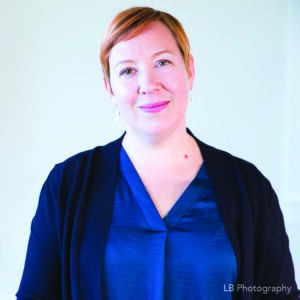Pray for Their Happiness, not Against Their LGBT+ Identity.
By Sarah Rutledge Fischer
Dear Allie,
I’m writing because I’m concerned about my twin sister. We are high school freshmen living in a small Tennessee town. My sister is gay, and I’ve known that just about as long as there was anything to know. I never thought it was much of a big deal. Our parents are super supportive, and she’s never had any problems or bullying about it at school. So, I was completely shocked the other day when I found pamphlets in her purse about “counseling for unwanted same-sex attractions.” They were for a pray-away-the-gay program. I didn’t even know that was still a thing. When I confronted her about them, she told me to stay out of it, that she was just so lonely, and that I didn’t know what it was like. I don’t know what to do. How can I help her?
Yours,
I Love My Gay Twin Sister
Dear ILMGTS,
I am so glad you are reaching out. It sounds like your sister really needs your love and support right now. Let me see if I can help.
As I think you already know, “conversion therapy” (also known by the deceptive term “reparative therapy”) has been proven over and over to be ineffective and extremely dangerous. Unfortunately, ongoing societal bias and discrimination against LGBT+ people mean that some of these programs have continued to thrive. Young people, like your sister, are especially vulnerable to conversion therapy and usually come out the other side deeply damaged. Before talking further with your sister, take a minute to educate yourself on the details. A great place to start is on the Human Rights Campaign website with a piece titled, The Lies and Dangers of Efforts to Change Sexual Orientation or Gender Identity (http://www.hrc.org/resources/the-lies-and-dangers-of-reparative-therapy).
Now, let’s talk about your parents. Your sister is beyond lucky to have parents who accept and support her LGBT+ identity. It is very important that you get them in on this conversation. If you aren’t sure how to bring your parents into the conversation, you can start by showing them this column. If your sister truly is looking into such a harmful option, she is likely dealing with some very difficult self-image issues. It might be time for your parents to help her find an LGBT-positive counselor to help her navigate her teenage years.
Now, your sister did give you one big hint about what has made her feel so desperate to change that she would consider conversion therapy—she told you that she is lonely. Don’t discount the impact that loneliness and isolation can have. Nearly every LGBT+ adult who grew up in a small town is nodding his/her head in sympathy with your sister right now, and lots of them are wishing they could reach out and let her know that it gets better.
Fortunately, you and your sister have more options than did past generations of small-town lesbians and their allies. Many isolated gay teens find refuge and community with other LGBT+ youth online. That said, the internet is vast and not always age appropriate. It can be hard to know where to start. You might encourage her to check out TrevorSpace.org, a social networking site for LGBT+ youth ages 13-24. It is run and monitored by the folks at the Trevor Project, who have long provided crisis intervention and suicide prevention resources for LGBT+ youth.
Offline, if your parents are willing to make an occasional long-distance drive, it would be great for your sister to make it to some in-person LGBT+ youth meet-ups. If you are near Memphis, check out PRYSM, an LGBT+ youth organization run by Out Memphis. If you are near Nashville, consider the Just Us program run by the Oasis Center. You might also encourage her to look into some of the LGBT+ summer programs listed on the PFLAG site. A week-long or even month-long summer camp may give her the chance to form long-lasting friendships with other LGBT+ teens and leave her feeling less alone.
We all need a community of people who reflect our core characteristics back to us in a way that allows us to see them as something positive. Hopefully, if you and your parents can help your sister build a community of LGBT+ peers, your sister will begin to see her LGBT+ identity as something to be celebrated instead not eradicated. That should get you started.
Your friend,
Allie.
To submit your own question, email Allie at allie@focusmidsouth.com.




